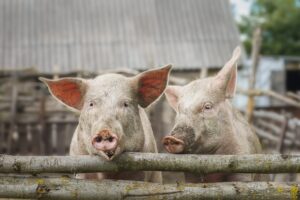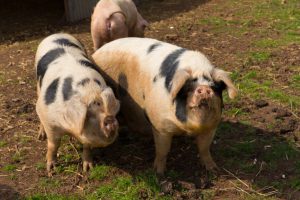Why Pork Deserves a Prime Spot on Your Table
When it comes to versatile and flavour-packed meats, pork often flies under the radar. While beef, chicken, and lamb tend to get all the glory, pork has been a culinary staple for centuries—and for good reason. Whether you’re a fan of rich, slow-cooked belly, juicy pork chops, or crispy crackling, pork offers a range of cuts and cooking methods that suit any occasion. Let’s take a closer look at why pork deserves a prime spot on your table, and how it can elevate your meals from the everyday to the extraordinary.

A Versatile Meat for All Occasions
One of the key reasons pork is so beloved by chefs and home cooks alike is its incredible versatility. There’s a cut of pork for nearly every cooking style and occasion. Pork shoulder, for example, is perfect for slow-cooking, resulting in succulent pulled pork that’s ideal for sandwiches, tacos, or served as part of a hearty meal. Pork tenderloin, on the other hand, offers a lean, tender option that’s quick to cook and easy to pair with a variety of sauces and sides.
For a more indulgent meal, roast pork belly—with its crispy crackling and juicy interior—provides a perfect centrepiece for a Sunday roast or special occasion. And let’s not forget the simple pork chop: whether grilled, fried, or roasted, it delivers a juicy, flavourful bite every time. No matter what you’re cooking, pork can be the star of the show.

Flavour Like No Other
Pork’s mild, slightly sweet flavour profile makes it the perfect canvas for a wide range of seasonings and marinades. From classic British roast pork seasoned with herbs like sage and rosemary, to spicy barbecue pork ribs slathered in smoky sauce, the possibilities are endless. Pork is one of those rare meats that pairs beautifully with both sweet and savoury flavours. Think apples and cider, mustard and honey, or even Asian-inspired glazes like soy, ginger, and garlic.
Moreover, different cuts of pork offer varying flavour profiles. The fattier cuts, like pork belly and shoulder, boast a rich, almost buttery flavour when slow-cooked, while leaner cuts like tenderloin are more delicate and refined. With pork, you can tailor your dish to your personal taste preferences, knowing you’ll end up with a satisfying result every time.

An Affordable Choice Without Compromising on Quality
While some premium meats can put a dent in your wallet, pork is a more affordable option that doesn’t compromise on quality. Pork offers excellent value for money, especially when considering its versatility and the range of dishes you can create from a single cut. From a simple weeknight dinner to a festive family gathering, pork provides an economical yet delicious solution that doesn’t require extravagant preparation.
For those looking to stretch their budget further, pork’s ability to be transformed into a variety of products, such as sausages, bacon, and ham, adds even more value. These pork products can be enjoyed in countless dishes, from hearty breakfasts to gourmet dinners, making pork a staple ingredient in kitchens around the world.

Health Benefits You Might Not Expect
While pork has sometimes received a bad reputation for being high in fat, it can actually be a healthy addition to your diet when enjoyed in moderation. Lean cuts like pork loin and tenderloin are relatively low in fat and are excellent sources of high-quality protein, essential for muscle growth and repair. Pork is also rich in important vitamins and minerals, including B vitamins (especially B6 and B12), zinc, and iron, all of which are vital for maintaining a healthy body.
Modern pork farming practices have also focused on producing leaner meats, meaning you can enjoy a range of pork dishes without worrying too much about excessive fat content. By selecting leaner cuts and trimming any visible fat, you can enjoy pork as part of a balanced diet.

A Sustainable Choice for the Conscious Consumer
Pork production has made significant strides in sustainability over recent years. Many farms are now focusing on more eco-friendly and humane farming practices. In the UK, for example, Red Tractor certification ensures that pork is produced with a focus on animal welfare, environmental responsibility, and food safety. By choosing responsibly sourced pork, you can enjoy your meals knowing that the meat on your plate has been produced ethically and sustainably.
Local sourcing is also a great way to support sustainability. The UK is home to many high-quality pork producers, offering everything from traditional breeds to organic options. Buying locally not only supports British farmers but also reduces the carbon footprint associated with transporting meat across long distances.
Whether you’re looking to create a simple, flavourful meal or a gourmet feast, pork should be at the top of your list. Its versatility, affordability, and flavour make it a staple ingredient in kitchens around the world. From the juicy tenderness of pork loin to the rich indulgence of slow-cooked belly, pork offers something for everyone. And with leaner cuts and sustainable farming practices, it’s easier than ever to enjoy pork as part of a healthy and responsible diet.
Next time you’re planning a meal, consider giving pork a prime spot on your table. You might just discover your new favourite dish.
Delicious Pork Recipes:
Sweet chilli-glazed pigs in blankets
